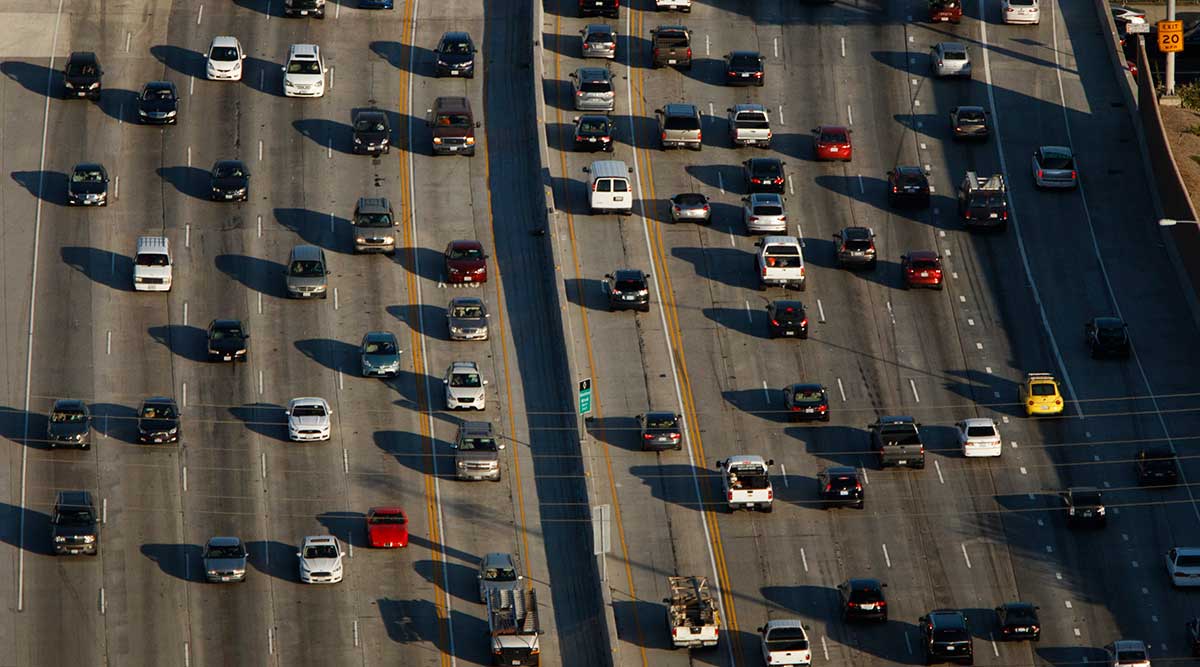Californians Give Big Thumbs Down to New Gas Tax, Poll Finds

Californians may hate swerving to avoid potholes, but a new law that will charge drivers an extra $10 a month to pave over the state’s problem roads is provoking its own kind of road rage.
People up and down the Golden State — and all but the most liberal Democrats — are against the gas tax that the Legislature narrowly passed in April, according to a new poll by the Institute of Governmental Studies at University of California, Berkeley.
“When you’re digging into somebody’s wallet, it’s when they sit up, pay attention and start to object,” said Mark DiCamillo, who directs the Berkeley IGS Poll.
About 58% of registered voters oppose the tax, but 35% favor it and 7% have no opinion, the poll found.
With little they can do about the law, voters might make their outrage known in next year’s elections.
“No doubt, some of these legislators will be in peril in 2018,” said Larry Gerston, a political science professor emeritus at San Jose State University. “It’s happened before — you go out on a limb, and you pay for it.”
The Legislature already could be paying the price. Its public approval rating dropped to 50% — down 7 points since March, the poll found. One effort is underway to recall freshman Sen. Josh Newman (D-Fullerton), who voted for the tax, as volunteers gather signatures to overturn the law through a long-shot ballot initiative launched by Assemblyman Travis Allen (R-Huntington Beach).
Mark Carbonaro, a self-described independent voter from Monterey, describes the tax as “punitive” and harmful to Californians coping with skyrocketing housing prices and other costs. He sees it as another example of Democrats making life harder for the people they should be trying to help.
“You look around and you say, 'These people claim to be the friends of the poor, but all of these things they’re doing end up raising the cost of living,' " he said.
The Bay Area was evenly split on the subject, but a whopping 72% of voters in the state’s more conservative Inland Empire and 65% in the Central Valley said they opposed the law — enough to make incumbent Democrats facing re-election shudder.
State Sen. Jim Beall, (D-Campbell), was the lead author of Senate Bill 1, which will raise the gas tax by 12 cents per gallon starting in November and increase the annual vehicle registration fee next year by $25-$175, depending on the value of the car. The state estimates the increases will cost the average driver about $10 a month.
Beall worked for years to craft a proposal that would help California bring the state’s crumbling roads back into shape after years of neglect. Delaying maintenance and repairs will only drive up the cost , he said when asked about the poll.
“Nobody likes these kind of things,” Beall said, “but they understand that unpleasant things have to happen when you get to the point where the roads are going to fall apart. It’s an ongoing expense that has to be paid for.”
Beall suggested voters might feel differently if the survey question had included more information about the degree of the problem, the average cost to drivers and how the money would be used.
The Berkeley poll surveyed 1,628 Californians, including 1,271 registered voters, by phone between May 4-29. The maximum margin of error for the likely voter sample is plus or minus 2.7 percentage points.
The tax, which Gov. Jerry Brown championed and signed into law, received the most support among younger voters, Bay Area residents, Californians with advanced degrees and Democrats. But dissatisfaction was high even among those groups.
The results underscore just what Gerston calls “the famous disconnect of American politics: People want things done, but so often, the people who want them done don’t want to pay for it.”
Chris Clark, a retired teacher living in Santa Clara, said she feels differently about the tax. She thinks of her 1978 Cadillac, which has taken a beating from the roads. It recently hit a pothole off Highway 17 that was so big, she said, her first thought was: “My God, I’m lucky I didn’t get stuck in there.”
She hopes the tax ends up being a good trade-off for drivers — even if most Californians are more skeptical.
“It’s better to put the money there,” she said, “instead of getting our cars fixed.”
Distributed by Tribune Content Agency, LLC

